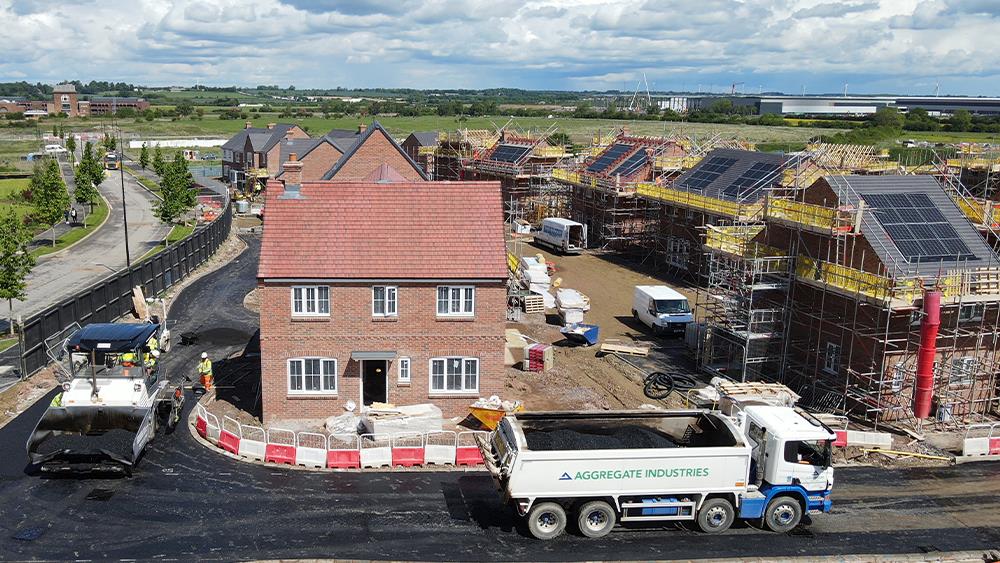

The change is an important next step on the company's carbon reduction journey and a vital move for the sector.
Driving forward with its commitment to becoming the UK leader in innovative and sustainable building solutions, Aggregate Industries has transitioned to warm mix asphalt production as standard across its asphalt product portfolio.
Boasting a wealth of benefits from carbon savings, reduced build costs and enhanced life-expectancy, warm mix asphalt offers the same high quality and performance when compared to its hot mix equivalent, with a number of Aggregate Industries’ customers already seeing the benefit WMS brings to its projects.
Mixing at temperatures 20-40°C lower than hot mix asphalt allows for a significant reduction in CO2 emissions by using less fossil fuels and resources during the manufacturing process. In addition, nuisance fuming, odour and steam at the project site are minimal, enabling enhanced and safer working conditions at both the plant and site.
WMA also reaches trafficking temperatures quicker than conventional hot asphalt, enabling earlier reopening of carriageways to the travelling public, resulting in less traffic disruption and potential to reduce build costs. This will increase a contractor’s productivity by enabling more material to be laid within a working window, reducing the overall construction timeframe and subsequent delays to motorists.
Lower asphalt production temperatures greatly reduce binder ageing and in combination with the highly compactable nature of the asphalt, pavement life expectancy is significantly enhanced.
Vicky Smith, Managing Director of Asphalt at Aggregate Industries, said: “Our position as the UK’s leading building materials supplier means our contribution towards the transition to net zero must be intrinsic. We recently made the switch from hot mix to warm mix asphalt across our range of asphalt products, which our customers have been piloting for a number of months.
“This is an important next step on our carbon reduction journey, and a vital move for the sector. Road networks will continue to be an integral part of society and it is how we produce the raw materials and construct them that must change to incorporate pioneering and advanced technologies, without compromising on performance and quality. We must find ways for roads to last longer and perform better.”
Smith continued: “Moving to WMAs is a huge step forward on our sustainability journey. If all production in the UK switched to WMAs, it would save around 61,000 tonnes of CO2 a year, the equivalent of cutting around 480 million kilometres (300 million miles) of car journeys. Up to £70million a year could also be saved through increased shift outputs. .
“Decarbonising construction materials and activities lies at the heart of Aggregate Industries as we strive to pave the way for a greener future. That’s why we have changed our way of working to use WMA as standard, which offers efficiency, sustainability and health and safety benefits without compromising on performance.”